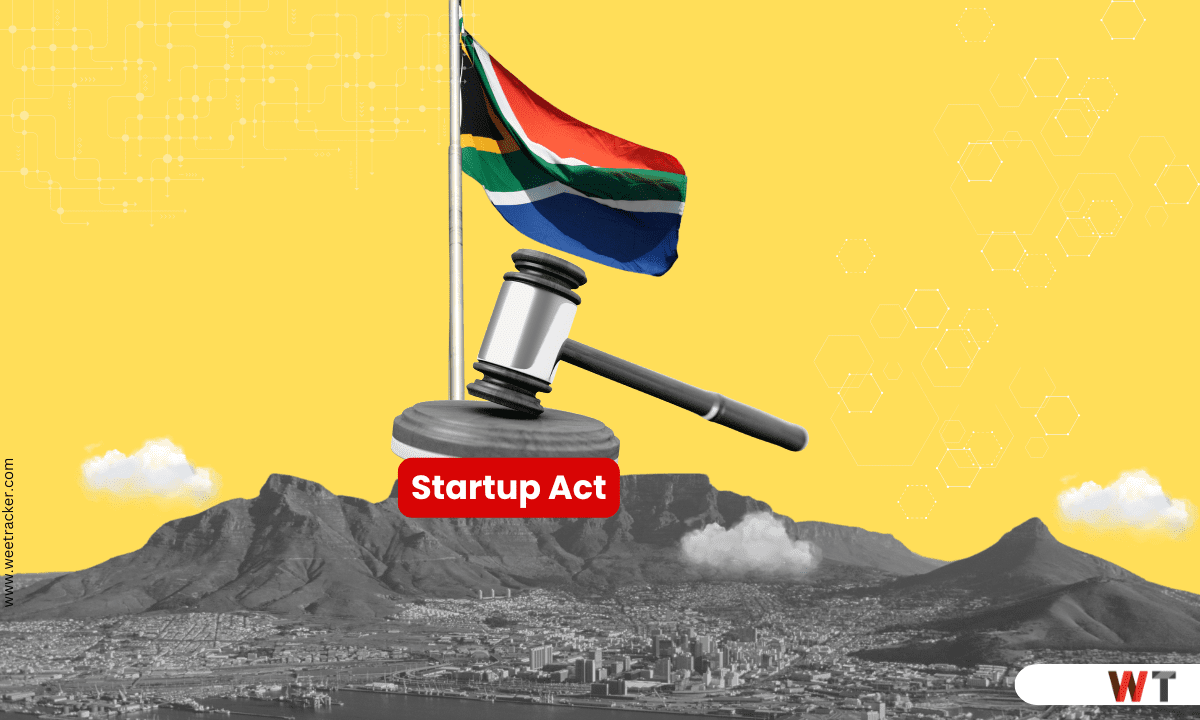As Decline Looms In SA, Push For ‘Long-Overdue’ Startup Act Intensifies

South Africa’s tech startup ecosystem, once a leader in Africa, is now facing significant challenges. Industry stakeholders are increasingly vocal about the need for a dedicated Startup Act, which they argue is long overdue and critical to reversing the country’s slow decline in venture capital funding and startup growth.
Recent data paints a bleak picture. South Africa experienced a 41% year-on-year drop in venture funding in 2022, our comprehensive database, WT Elite, shows, and it recorded another decline last year.
Once a mainstay in the top two of Africa’s prominent “Big 4” tech ecosystems, South Africa has slipped down the pecking order in the last two years in terms of funding, coming 3rd and 4th in 2023 and 2022 respectively. These days, it risks losing its position to emerging ecosystems like Ghana and Tunisia, both of which are aggressively building more startup-friendly environments.
AfricArena, a Cape Town-based accelerator, has warned that South Africa is falling behind. “South Africa is now way below Nigeria in terms of growth in startups and funds raised. Egypt is now second in total startups and funds raised, and Kenya third,” the report states. Tunisia, which passed its Startup Act in 2018, has seen venture capital inflows swell significantly.
This decline isn’t going unnoticed. In a recent engagement with Parliament, the Startup Act Movement—a coalition of South African entrepreneurs—urged lawmakers to prioritise reforms that could ease exchange controls and improve the ease of doing business. These stakeholders argue that the restrictive regulatory environment is choking innovation and deterring both local and foreign investment.
Why a Startup Act?
Countries like Tunisia, Senegal, and Nigeria have already passed Startup Acts, and the results are clear. Tunisia’s Startup Act is credited with sparking a startup ecosystem boom, attracting international investors and dramatically increasing funding for tech startups. InstaDeep, a Tunisian AI startup, raised USD 100 M in a Series B round and was acquired for USD 685 M by Germany’s BioNTech in January 2023.
The success of these countries has prompted South Africa’s Startup Act Movement to push for similar legislation. Launched in 2014 and led by SiMODiSA; an industry-led initiative supporting startups, the movement has been instrumental in identifying barriers to growth for small and medium enterprises (SMEs).
Matsi Modise, a member of the steering committee, highlighted two major hurdles for startups in South Africa: restrictive visa requirements for foreign talent and exchange controls that limit financial flexibility. “We are not making it easy for talent to come into South Africa because we don’t have a very clear, straightforward, and easy-to-follow startup visa regime,” Modise said in a conversation with techCabal.
The introduction of a dedicated South African Startup Act could streamline visa processes, open up more funding opportunities, and create a clearer legal framework to protect intellectual property. Such reforms, stakeholders argue, would help reinvigorate the country’s tech sector and attract much-needed capital and talent.
Slow Government Response
Despite clear signs of stagnation, South Africa’s government has been slow to act. As AfricArena noted, the country has shown the slowest progress in drafting and implementing a Startup Act compared to its peers in the “Big 4.” This lack of urgency has allowed countries like Ghana to close the gap. Ghana, currently finalising its own Startup Bill, is increasingly seen as an attractive destination for venture capital due to its political stability and liberal business environment.
South African stakeholders have been engaging with the government for several years, with some positive developments. In October 2021, the Startup Act Movement met with the President, receiving what committee member Modise called a “positive response.” Since then, discussions have been ongoing with the Deputy Minister of Finance and the Minister of Science and Technology. However, no legislation has been finalised.
The lack of a dedicated framework is contributing to South Africa’s declining global competitiveness, observers believe, with the country now ranked 84th out of 190 economies in the World Bank’s Ease of Doing Business report, a drop from 82nd in 2018. Entrepreneurs say this is further evidence that the country needs swift and decisive regulatory reforms.
A Boost from International Partners
Despite the slow pace of governmental action, the Startup Act Movement has received international support. The UK-SA Tech Hub, a British High Commission initiative, recently provided a third round of undisclosed funding to help drive local policy reform. So far, the Tech Hub has invested ~USD 116 M into South Africa’s tech ecosystem, with a focus on enabling high-growth startups.
Milisa Mabinza, director of the UK-SA Tech Hub, believes that provincial governments could play a critical role in implementing reforms faster. “We believe the Government of National Unity can effect policy changes more efficiently at the provincial level,” Mabinza said.
The call for a Startup Act in South Africa is becoming increasingly urgent as the country faces the possibility of being overshadowed by more agile competitors. Without bold reforms, South Africa risks losing its position in Africa’s Big 4, and with it, much of the venture capital and talent that has historically fueled its tech sector.
As Mzwandile Masina, chairperson of the Portfolio Committee on Trade, Industry, and Competition, noted during recent parliamentary discussions: “In South Africa, obtaining loans for consumption is far easier than securing financing for productive ventures.” The Startup Act Movement hopes to change that by advocating for a legislative framework that can provide the support and clarity startups need to thrive.
While progress has been slow, the combination of mounting pressure from the Startup Act Movement, international support, and growing competition from other African countries may finally push the South African government to act. Whether it’s too late to reverse the decline remains to be seen, but for now, stakeholders are holding out hope for much-needed reform.